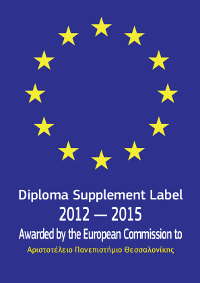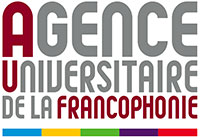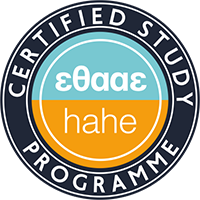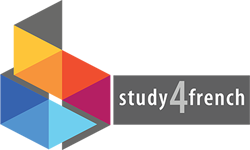
In 2012 the Aristotle University of Thessaloniki was awarded the Diploma Supplement Label from the the European Commission.
The Diploma Supplement is a personal document attached to a higher education degree, in order to make it easier for third persons – particularly persons in another country – to understand what the diploma means in terms of knowledge and competences acquired by its holder. The Diploma Supplement was designed by UNESCO and the Council of Europe and was adopted by the European Parliament in 2004 (Decision No 2241/2004/EC on a single Community framework for the transparency of qualifications and competences). The Diploma Supplement is a document which provides information on the nature, level, context, content and status of the studies that were pursued and successfully completed by the individual who holds the original degree to which the DS is attached. It is free from any value judgements, equivalence statements or suggestions about recognition.
The Diploma Supplement
- does not replace the original degree;
- does not give any entitlement to formal recognition of the original diploma by academic authorities of other countries.
The Diploma Supplement was established in article 15 of Law 3374 (Government Gazette A 189/02.08.2005) on “Quality Assurance in Higher Education – Transfer and Accreditation System – Diploma Supplement”. The Diploma Supplement is issued automatically by all AUTh Faculties and Schools upon completion of a course of studies, free of charge, in both Greek and English.
Requirements of the Programme
In order to be awarded a degree from the Department of French Language and Literature, students are obliged to attend and pass examinations in compulsory courses (73 credits) and required-elective courses (51 credits). The examination may involve a written or oral exam, continuous assessment or written assignments.
The undergraduate Study Programme of the Department of French Language and Literature aims at the acquisition of basic knowledge in the fields of Linguistics, Teaching of Modern Languages, French Literature, Comparative Literature, French Culture and Translation – Translation Studies.
The Programme aspires to cultivate the mind, provide instruction, develop scientific and critical thinking and formulate a European consciousness. More specifically, its objectives include the promotion of French education in the Greek-speaking area, multicultural communication, and training scientists to study and comprehend the French language and letters, prepare curricula for the teaching of the French language and literature/culture in education, manage written and oral scientific discourse, describe and interpret cultural phenomena from the French-speaking and Greek-speaking world, connect linguistic approaches with the teaching and learning of French as a first/second foreign language, and be familiarized with modern teaching and paedagogical methods, special topics related to foreign language teaching and current theories on translation.
On the level of applications, it aims at a learning outcome and skills that will provide graduates with the ability to offer their services and knowledge to the fields of research, education, translation and culture.
Therefore, the graduates of the Department of Foreign Language and Literature, depending on the required-elective courses they have chosen, are able to acquire the following skills:
- to conduct research and write scientific papers on the fields of French and comparative literature, the teaching of modern languages, linguistics and translation studies,
- to support philological and linguistic research at research bodies, centres and institutes,
- to teach French in primary and secondary education in the public and private sector, and to adults at various educational institutes,
- to create original educational material for teaching French as a foreign language,
- to teach about French/French-speaking literature and French culture,
- to use information and communication technology (ICT) in teaching French as a foreign language,
- to use various systems of asynchronous distance learning, (h) to intermediate between speakers of French and speakers of Greek, (i) to select and promote French literature to Greek-speaking publishers, (j) to translate general/specialized texts from French into Greek.
The graduates of the French Department, apart from the basic knowledge of their science and profession, also have the ability to:
- turn their knowledge into practice,
- communicate in French and Greek,
- search for, analyze and synthesize data and information by making use of the appropriate technology,
- adapt to new situations and make decisions,
- work autonomously or in groups in an international and/or multidisciplinary environment,
- produce new ideas and scientific knowledge, plan and manage scientific and research projects,
- apply criticism and self-criticism,
- respect diversity and multiculturalism,
- portray a professional, social and moral responsibility and sensitivity on gender issues and
- promote free deductive and inductive thinking.
See the Diploma Supplement here.













